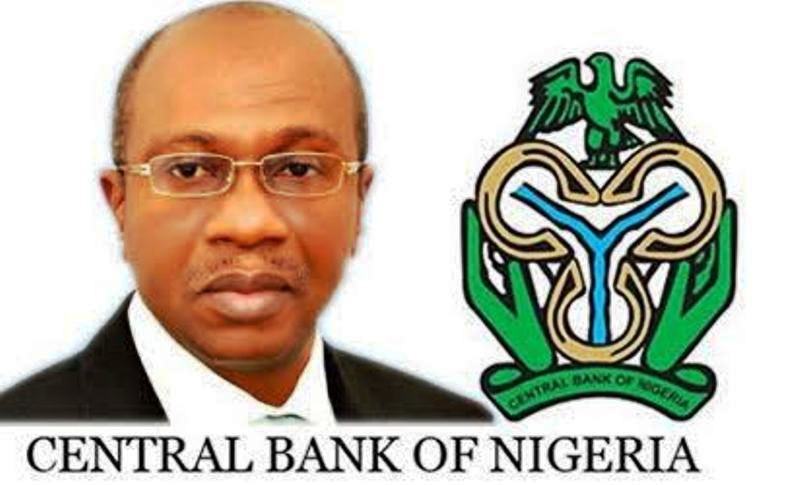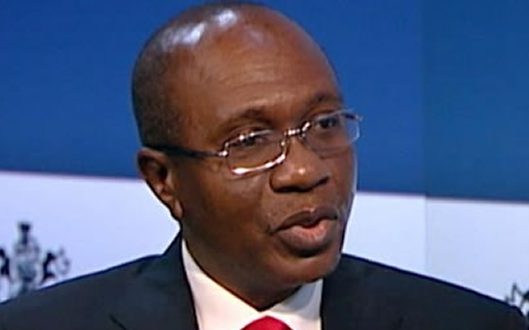I like the story of the madman and the fire in the bush which I always tell with relish. In one of those remote villages in Edo State where the harmattan could hit with ferocious force, the madman had set a little fire to warm himself. All of a sudden the whole bush was on fire. Still warming himself up, he really didn’t care about the inferno building up, until he was asked what happened here?
The answer for him was simple. I only set a little fire here to warm myself. I really don’t know about that huge thing billowing up there.
When I look at the recent monetary policy on withdrawal limits put in place by the Central Bank of Nigeria and the mixed reactions that have greeted a seeming laudable project, my little smile is that the Central Bank Governor, Godwin Emefiele, doesn’t look like the kind of guy that would ignite the bush and really won’t care what happens to the whole environment.
I also look at the flip side of the little guy or the rural woman out there, like my mother, during her lifetime, when she would go to the market with a couple of yam tubers, so that she could sell and be able to feed the family. What would have been her concern with withdrawal limits? Like the madman, she wouldn’t bother herself with the conflagration, inferno or anything you may like to call it, because she didn’t have pile of money out there. Her primary goal would have been to quieten the butterflies in the stomach.
That was her concern in 1983, when a certain government initiated a similar policy they thought would receive hosanna from the ordinary folks. Instead, the policy brought pain, immeasurable pain, that as an undergraduate, continuing at school, which was already a challenge, got extremely complicated. People suffered. People died. Unfortunately they were not even lucky enough to make the stats of the departed.
In fairness to the CBN Governor, some of his policies have always targeted the ordinary folks, to include them in the nations monetary system. For instance, a major objective of the Payment Service Banks (PSB), which was recently revved up, is to enhance financial inclusion in rural areas by increasing access to deposit products and payment/remittance services to small businesses, low-income households and other entities through high-volume low value transactions in a secured technology-driven environment.
What then is the difference? The nation’s currency, the Naira, has been redesigned. People with cash have been asked to deposit same in the banks. All of a sudden, monies from sealed rooms and even graves, are showing up in the banks in dematerialised form!
The weekly withdrawal limit has been pegged at N100, 000 for individuals and N500, 000 for corporate bodies. Daily withdrawal even at POS is N20, 000.
In some quarters there is near dancing in the streets. This is the best thing to have happened. It will curb fraud, extinguish vote buying and put a damper on the ability of terrorists to fleece their victims of humongous sums of money. The country really is headed in the right direction!
The apex banks sees it as a further consolidation of the cashless policy introduced under President Goodluck Jonathan. Addressing the Senate Committee on Banking, Insurance and other Financial Instituions, Mrs Aishat Ahmad, Deputy Governor, Financial System Stability, who appeared for screening alongside her counterpart, Edward Lametek Adamu, Corporate Services, said the latest policy would boost the cashless policy of government.
“The cashless policy in Nigeria, was first introduced over 10 years ago in 2012 starting in Lagos State. In 2013 the policy was later extended to six additional states and the Federal Capital Territory. Since then, Nigerians have continued to embrace the cashless policy by using electronic channels for their transactions, whilst the Nigerian payments system and telecommunications infrastructure continued to develop.”
Really? How often does Ahmad leave the Central Bank vaults for the village to see the amount of electronic transactions going on there? There could be a similitude of good things happening in the cities as far as electronic transactions are concerned but not in the villages, where networks remain a nightmare, where people queue for hours just to be able to withdraw some money as little as N2000.
Will this curb corruption? Perhaps. Look at the story this way, without the sweetness it contains. For over seven and half years, this administration maintained a double forex window – the Central Bank rates and the black market rates. For all these years people benefited, collecting dollars at the official rates and selling them off at the black market. At a time it was more than N300 difference in one US dollar. Now the new monetary policy is targeted also to address the forex market problems; who then were the beneficiaries of such a convoluted scheme? Will they just be allowed to go free, like a bird in the air, away from the fowler?
What then is the difference between what the CBN Governor has done and other practices before him? Pretty straight, I believe. And the Governor should be sincere enough to confront the truth and make amends to bruised sensibilities. Here it is. From the moment he nursed any interest to run for the highest office in the land, his office became pigmented with the hue of a politician, and every of his little step bred suspicion. For the first time his tenure at the Central Bank is becoming so controversial that there are now instances of people demonstrating for, or against him. It was never so. It will remain very difficult for him to demonstrate that his actions are without biases.
Is the nation ripe for a cashless policy? Somebody told me the story of four major markets in Nigeria, which include: Apongbon Market in Lagos, the main market in Kano, Onitsha Market in Anambra State, and Ariaria Market in Abia State. In these markes, any sum of money in cash could be mobilised at any time. The Cable News Network (CNN) had once reported that there was so much cash available in the Lagos market that it was possible for a woman to bring out over $100, 000 from under the mat in the small shop. Perhaps the people have to be encouraged to put their money in the banks instead of preferring to transact business in cash. There may be very little the government can do about that age-old practice.
I have spoken with some people and none had anything against it except that it should have been introduced in phases. A process has to start at some point but the people must find a reason to be part of it. Quite a few people believe that in introducing the policy a clear difference should have been made between the city and the rural areas where it is still pain to do electronic transactions.
In addition to the foregoing, is the infrastructural gap in the rural areas, some miserable level of development which is only understandable on the grounds that the telecom operators will first direct investment to areas that could give handsome returns on investments before sinking money in rural areas. This is not a crime but a matter of investment decisions. In summary telecoms services in most rural areas are still very challenged; in fact, the telecom backbone is too weak for such transactions. It thus behoove the government to be more analytical, preemptive and forward looking in introducing some policies.
The way to go in this modern world is to embrace technology but it is going to be pretty difficult for President Mohammadu Buhari and the CBN Governor, Emefiele, to explain to rural folks that this cashless policy was not introduced to punish them.





